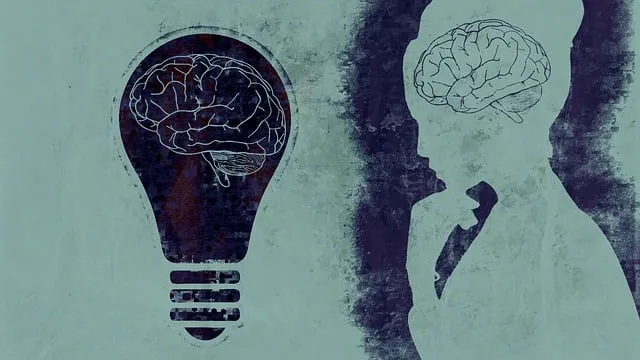Kaiser Permanente's training initiatives in Highlands Ranch are revolutionizing mental wellness education by combining comprehensive courses with interactive elements, such as a Mental Wellness Podcast Series. These programs empower community members to recognize and support their own and others' mental health, utilizing evidence-based practices like CBT and mindfulness. Through practical workshops, online modules, and peer learning, participants gain skills to prevent and manage mental health issues, fostering resilience and a healthier community fabric. Continuous improvement is driven by evaluating success with diverse methods, ensuring the curriculum remains relevant and effective for all roles.
Mental health literacy is a vital component of community well-being, empowering individuals to recognize and support their own and others’ mental health. This article explores the design of an engaging mental health education program, drawing insights from Kaiser Permanente’s successful training initiatives in Highlands Ranch. We delve into key topics, effective teaching strategies, evidence-based practices, and evaluation methods, offering a comprehensive guide for fostering resilience and promoting community mental health.
- Understanding Mental Health Literacy and Its Impact on Community Well-being
- Crafting an Engaging Curriculum: Topics and Strategies for Effective Learning
- Implementing Evidence-Based Practices: Tools and Resources from Kaiser Permanente Training Programs
- Evaluating Success and Fostering Continuous Improvement in Mental Health Education
Understanding Mental Health Literacy and Its Impact on Community Well-being

Mental health literacy, a key component in fostering community well-being, refers to the knowledge and understanding that enable individuals to recognize and support their own and others’ mental health. It’s akin to understanding basic first aid—knowing how to identify signs of distress, provide initial support, and guide individuals towards professional help when needed. Programs like Kaiser Permanente training initiatives in Highlands Ranch play a vital role in enhancing mental wellness. These comprehensive programs often include the Mental Wellness Podcast Series Production, designed to share insights and strategies for emotional well-being promotion techniques among diverse audiences.
By equipping community members with this knowledge, these initiatives empower individuals to prevent and manage depression and other mental health issues effectively. This proactive approach not only enhances individual resilience but also contributes to a healthier, more supportive community fabric. It’s a step towards normalizing conversations about mental health, breaking down barriers to access, and ensuring that emotional well-being is prioritized alongside physical health in everyday life.
Crafting an Engaging Curriculum: Topics and Strategies for Effective Learning

Creating an engaging curriculum is paramount for effective mental health education programs, like those offered by Kaiser Permanente training in Highlands Ranch. Topics should span a range that caters to both foundational understanding and practical application. Start with introducing common mental illnesses, their symptoms, and the importance of early intervention. Incorporate interactive discussions and case studies to personalize learning, making complex information digestible.
For anxiety relief, teach mindfulness techniques and stress management strategies. Self-care practices such as regular exercise, adequate sleep, and balanced diets should be explored as key components in maintaining mental well-being. Additionally, address the pervasive issue of mental illness stigma reduction efforts by fostering an environment where participants feel comfortable sharing experiences and learning from one another.
Implementing Evidence-Based Practices: Tools and Resources from Kaiser Permanente Training Programs

Implementing Evidence-Based Practices is a cornerstone of effective mental health education programs, and Kaiser Permanente training programs in Highlands Ranch serve as valuable resources for professionals seeking to enhance their skills. These programs prioritize evidence-based techniques that have been rigorously studied and proven to improve outcomes related to mental wellness. By integrating strategies such as cognitive-behavioral therapy (CBT) and mindfulness practices, participants gain tools to support individuals in managing mood effectively and developing coping skills.
The Kaiser Permanente training offerings provide a comprehensive suite of resources tailored for various roles, from healthcare providers to educators and community leaders. These programs offer practical workshops, online modules, and interactive sessions designed to foster understanding and mastery of evidence-based practices. Through engaging content and real-world applications, participants learn how to implement these strategies in diverse settings, ultimately contributing to the development of resilient individuals and stronger communities.
Evaluating Success and Fostering Continuous Improvement in Mental Health Education

Evaluating success and fostering continuous improvement are vital components of a robust mental health education program, such as those offered by Kaiser Permanente training programs in Highlands Ranch. Measuring the impact of educational initiatives is essential to understanding what’s working and where adjustments can be made. This involves setting clear learning objectives aligned with participants’ needs and desired outcomes. By employing various evaluation methods—from pre- and post-assessments to feedback forms and participant observations—instructors can gather valuable insights into knowledge gain, skill development, and behavioral changes.
Regularly collecting and analyzing this data allows for the identification of areas that require refinement, whether it’s refining content delivery, incorporating more interactive Self-Awareness Exercises, or enhancing resources on Self-Care Practices. Moreover, these evaluations facilitate ongoing dialogue between educators and participants, encouraging open communication about expectations, challenges, and successes. Incorporating Healthcare Provider Cultural Competency Training into the curriculum further ensures that education remains relevant, inclusive, and effective, ultimately contributing to a more competent and compassionate mental health care ecosystem.
Mental health education is a powerful tool for enhancing community well-being, and designing an effective program involves a strategic approach. By combining evidence-based practices from Kaiser Permanente training programs in Highlands Ranch with engaging curriculum design, we can create impactful learning experiences. Each section, from understanding mental health literacy to evaluating success, plays a crucial role in fostering a mentally healthy community. As we navigate the challenges of modern life, these programs offer a roadmap for creating a more resilient and supportive society.


